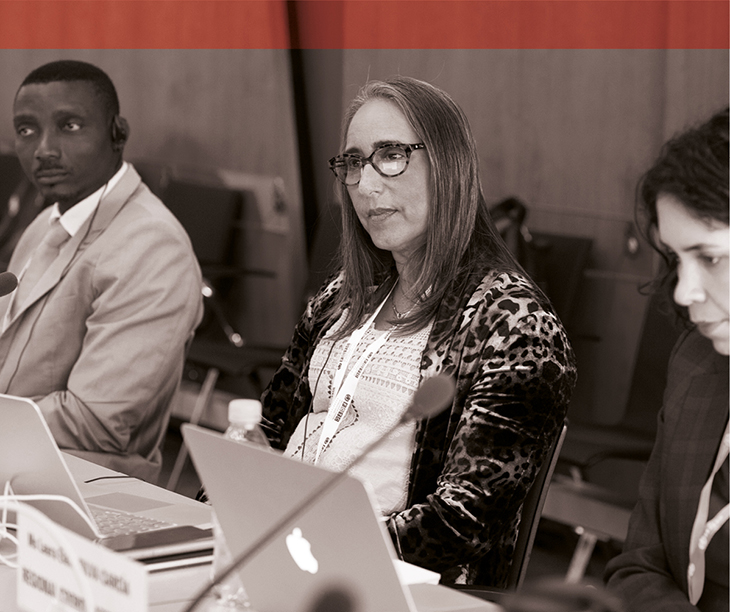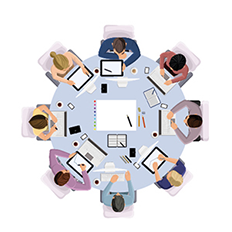2. Treaty governing body and its subsidiary bodies

2.1. The Conference of the Parties
The Conference of the Parties (COP) is the governing body of the WHO FCTC and is comprised of all Parties to the treaty. It regularly reviews the implementation of the WHO FCTC and makes decisions necessary to promote its effective implementation. The COP may also adopt protocols, annexes and amendments to the WHO FCTC.
At the first session of the COP held in Geneva in 2006, 113 Parties adopted by consensus a complete set of Rules of Procedure (ROP) that can be found here. Conduction of the sessions of the COP is governed by the ROP.
Since the third session of the COP in 2008, regular sessions of the COP are held every two years. At each regular session, the COP decides on the dates and venue of its next regular session. According to the ROP, extraordinary sessions of the COP may be held at the request of any Party.
In accordance with Rules 32 of the ROP, the COP has the authority to decide whether the sessions will be public, open or restricted, see Rules 2.10, 2.11 and 2.12 of the ROP. Sessions of the committees shall be held in public (see Rule 24quinquies of the ROP), unless the respective committees decide otherwise.
| Who can attend each type of session or meeting | ||
|---|---|---|
| Public sessions or meetings | Open sessions or meetings | Restricted sessions or meetings |
|
|
|
2.2. The Bureau of the Conference of the Parties
The COP elects its President at each regular session, as well as five Vice-Presidents. Each of these six officers represents one of the six WHO regions. Together they constitute the Bureau of the COP.
According to Rule 21 of the ROP, the officers of the Bureau shall commence their term of office at the closure of the session of the COP at which they are elected. They shall serve until the closure of the following regular session of the COP, including for any intervening extraordinary session.
At each regular session of the COP, the Parties in each WHO region shall elect a regional coordinator. Their term shall commence at the closure of the session of the COP to the closing of the next session of the COP, see Rule 24quarter of the ROP.
Learn more about the officers of the Bureau, visit the WHO FCTC’s website.
In the two-year period between regular sessions of the COP – known as the intersessional period – the Bureau meets three times to undertake its work, such as prepare, in collaboration with the Convention Secretariat the provisional agenda for each session of the COP, provide guidance to the Convention Secretariat on implementation of the workplans and budgets adopted by the COP and in the preparation of reports, recommendations and draft decisions submitted to the COP. It reviews the applications of nongovernmental organizations that apply for the status of observer to the COP and make recommendations in that regard. All the functions of the Bureau are described in Rules 6, 9, 19 and 21-24.
Regional coordinators attend meetings of the Bureau in an observer capacity and perform the following functions, according to Rules 24quarter: (a) Liaise with the officer of the Bureau representing the region and facilitate consultations with the Parties in the region between the sessions of the Conference of the Parties with a view to informing the work of the Bureau and keeping Parties informed of the Bureau’s work; (b) receive working documents or proposals of the bureau and ensure that they are circulated to the Parties in the region; (c) collect and send comments on such documents or proposals to the officer of the Bureau; (d) and act as a channel for the exchange of information, including a copy of invitations to the meetings for the implementation of the Convention, and coordination of activities with other regional coordinators.
The meetings of the Bureau are usually held in Geneva, Switzerland, where the Convention Secretariat is headquartered.
2.3. Working groups and expert groups
Working groups and expert groups are established by the COP with specific mandates and terms of reference. Both types of groups are considered as subsidiary bodies of the COP.
In the case of a working group, after notification by the Convention Secretariat, Parties can express interest to participate and nominate representatives.
In the case of an expert group, Parties nominate individuals in accordance with the Terms of Reference adopted by the COP and the required expertise. Experts attend expert group meetings in an individual capacity and not as representatives of their country.
Both types of groups report to the COP and their work is expected, but not limited, to result in the development of guidelines and recommendations for the implementation of various articles of the Convention.

